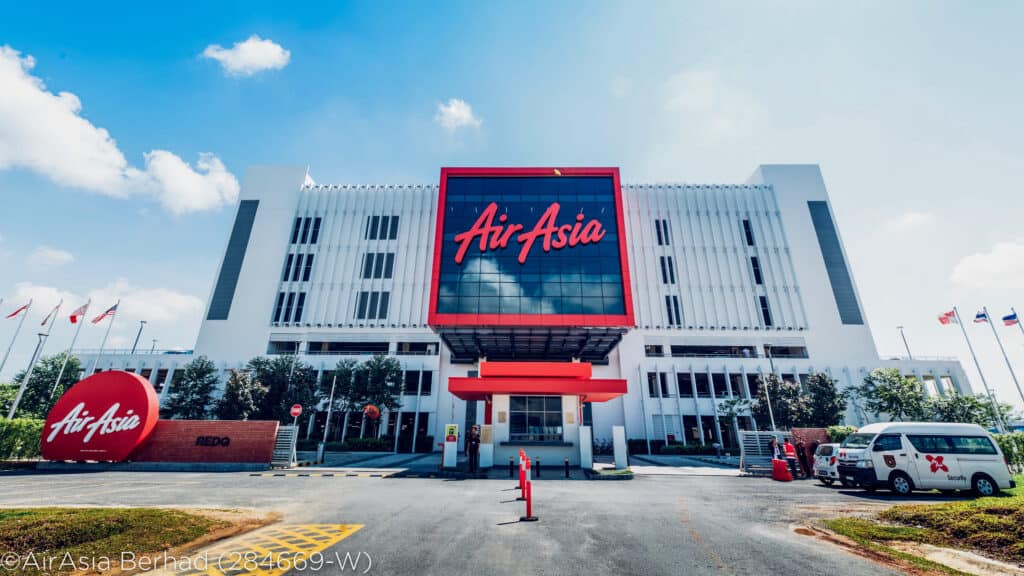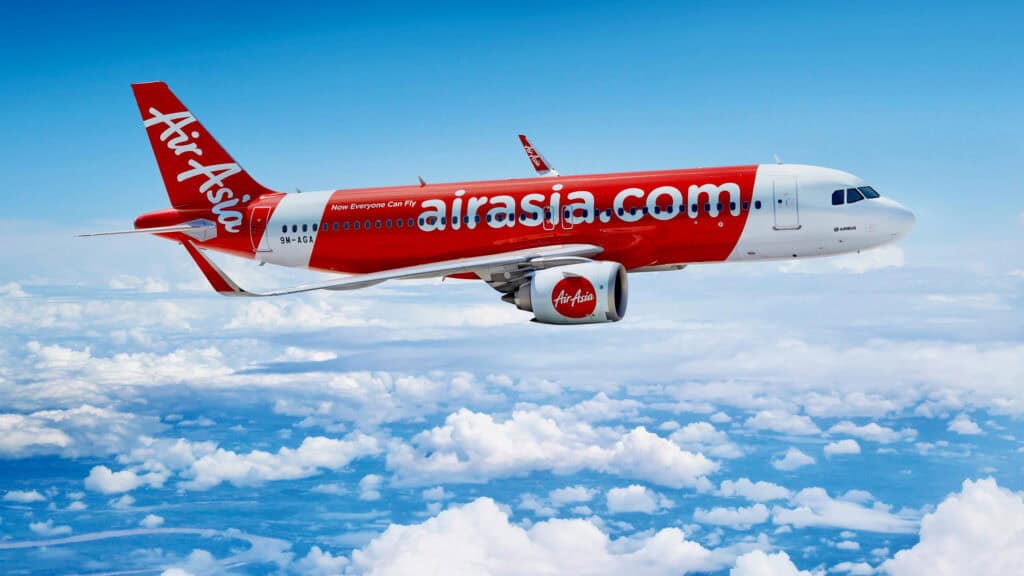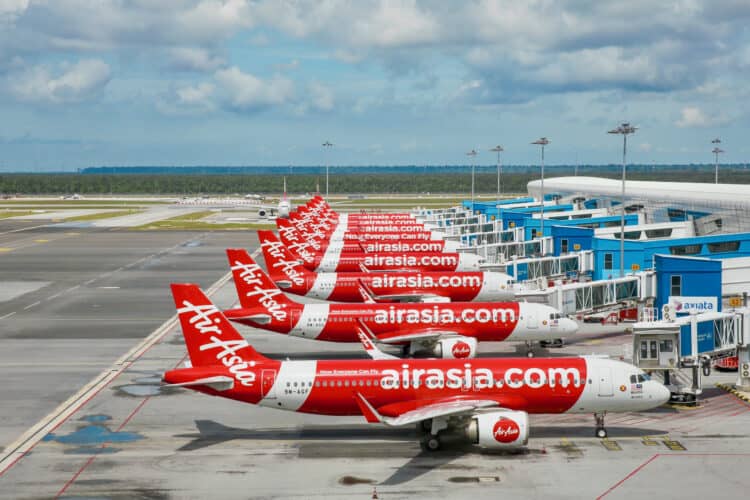The skies were not always clear for AirAsia, the World’s Best Low-Cost Carrier awarded by Skytrax 14 years in a row (15 years as of 2024), especially when Asia’s low-cost leader navigated global turbulence during the pandemic. The airline cited a net loss of USD 223 million in the first quarter of 2020 due to the plummeting demand for travel and pandemic-related restrictions, according to FlightGlobal.
June Allenie Caccam, former Regional Commercial head and now head of Business Growth for AirAsia, recalls how the pandemic brought operations to a halt as all aircraft were grounded. “At that time, I was handling the Philippines market. I remember we had to recalibrate and revisit our business continuity plans. No one expected the borders to close for such a long period and employees were mentally, financially, and emotionally drained, affecting work productivity,” she adds.

“As leaders, the important questions during that time were— how do we keep the team engaged and motivated despite the uncertainty? How do we support them mentally and emotionally while making sure we still deliver results? From a people management perspective, empathic leadership resonated more than ever.” June Allenie Caccam
Rebuilding the foundation
AirAsia presents itself as the people’s airline and its employees have always been the core foundation of its success. During the pandemic, AirAsia did all it could to encourage and support its employees to help weather the challenging times.
Teams switched to a hybrid work method to manage interactions through applications like Google Meet and Zoom. These applications were used not only for formal meetings but also for mirroring normal office interactions.
She recalls, “I remember my team would go online while they were doing their tasks. It gave everyone a sense of normalcy.”
Aside from the shift to a hybrid work environment, the company encouraged the employees to up-skill and explore new roles within the company. According to Caccam, “We had a cabin crew who was a finance graduate and decided to become our commercial analyst. She was instrumental during that time because we were doing a lot of forecasting and capacity management towards the start of the reopening.”

AirAsia has always been a data-driven company and the pandemic pushed this further. The aviation company used more live data to support real-time risk management where all decision-makers and team members can proactively anticipate potential issues across departments. In managing uncertainty, it’s important to recognize what factors are controllable and for the leaders to direct the focus of the team to those elements.
“With live data, it’s not an after-the-fact report. It's more of addressing a certain situation while it's happening. This allowed employees to be more agile and to make better forecasting & decision making.”
The pandemic changed the needs of customers as well. Caccam says before the pandemic, the question people were answering was: Where should I go next? “But during the pandemic, it all shifted to essential travel. They either want or need to go home or visit someone.”
Customers’ concerns became more about their safety and reliability of information. For two years, Caccam recalls becoming a one-stop information centre regarding ever-changing travel regulations and requirements.
“It wasn't our job to give them the travel requirements and the travel regulations, but we were seeing that in our social media channels, they were asking us for those things. So, we provided it to them.”
Now that the skies are clearer for the aviation industry to soar once again, Caccam recalls her journey of stepping up to lead during the pandemic with gratitude. “It has been challenging but exciting to be part of the team responsible for reopening and rebuilding AirAsia in the Philippines.”
“What story do I want to tell myself and others?” she asks, “and my answer is: I want to tell the story of how I helped the business recover. And of course, for myself, I wanted to learn how to lead in times of crisis and I felt, what better way to learn it than to go through it.”
AirAsia Group’s chief executive Tony Fernandes described the pandemic as the “toughest challenge” the company has faced since its launch in Malaysia in 2001. Fortunately, the company was able to return to flying above the clouds and was cleared for take-off, as it maximised technology and innovation to propel the Group into a better chapter post-pandemic.
Tailwinds of transformation
Recalling her final job interview in AirAsia as a marketing manager in the Philippines back in 2014, she was asked why she wanted to join the company and her reply was, that she wanted to be in the business of encouraging people to travel so they may be more understanding of other people's culture and way of life and learn more about themselves, so that they feel better connected.
Now working in her new role as a regional commercial head and moving to another country, Caccam is not new to pivots in life. “It was a roller coaster ride and it still is,” she says. “From focusing on marketing campaigns to driving commercial strategies for different international markets and making sure it's commercially feasible.”
What attracted her to get this new role and lead in a time of crisis was her curiosity. “I was very curious about how it would feel to be in that position. I think this is where I got the courage from. I felt more curious than scared of what I was going to go through.”
Climbing up the corporate ladder is not her ultimate measure of success. “Success is being able to realise that my work revolves around my preferred lifestyle and not the other way around. No matter what position or role I hold, I make sure that it doesn't consume my life so that I still get to do and learn other things including travelling for vacation or enjoying a lazy Sunday morning breakfast.”
Despite setting her eyes on the skies, she always tries to keep her feet on the ground. “Of course, staying humble is important. I am open to learning new things.” Remember that success is also about the courage to change, to transform.
Courage to transform
Transformation, for Caccam, is about “transforming ourselves to achieve our goals and get better at what we do. Transformation is not a two-step process, from Point A to Point B. It’s composed of multiple points and milestones with highs and lows. It’s a very personal experience, one that can be truly rewarding.”

Source: Airasia
“When we talk about courage,” she continues, “it would mean the courage to make mistakes, the courage to fail, the courage to lead oneself, to remain humble and to learn new ways.”
She says if one does not muster the courage to make mistakes, to fail, and to be humble then they will always stay the way they are. “That scares me: to be the same throughout my life. If we cannot transform ourselves, our environment and our quality of life will also not change, and even if it does, it's not necessarily what we desire. Maybe another good question to answer is, why do you want to transform?”
Looking back, she feels she was able to thrive in the company because she shares the same goals and the same vision to fly people to destinations, to make their dreams happen all at an affordable price, and to connect them with the world, attesting to the famous AirAsia tagline: Now everyone can fly.
* Editor's notes: This article is part of the Cxociety Coffee Table Book project (The Project) which chronicles the journey and experiences of senior business, operations, finance and technology leaders in Asia in recent years. The Project illustrates the tenacity, ingenuity and resiliency of the human spirit in the face of seemingly endless challenges.
With nearly 40 stories chronicled in The Project, it is a must-read compendium of learnings and experiences from seasoned professionals in the region.



